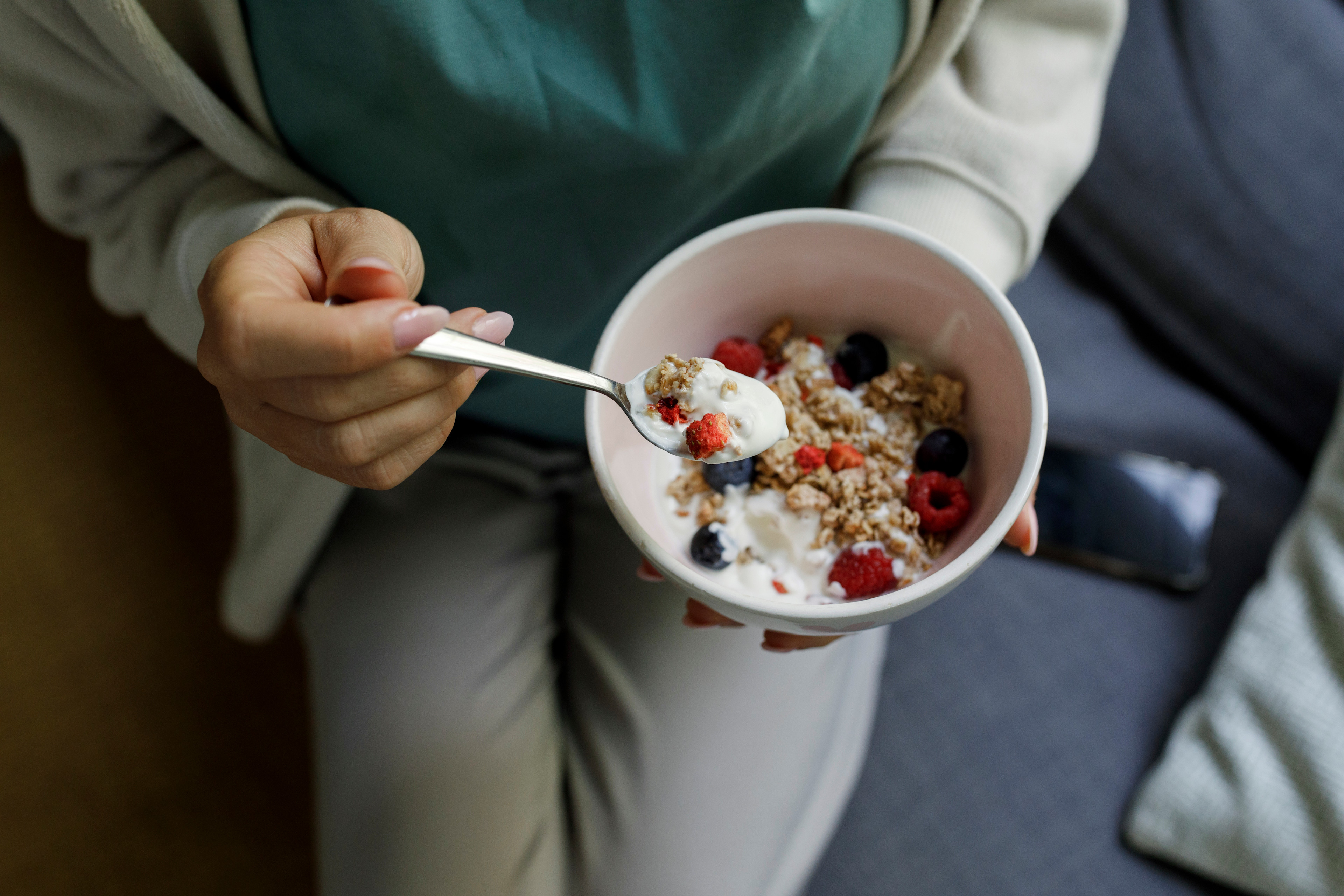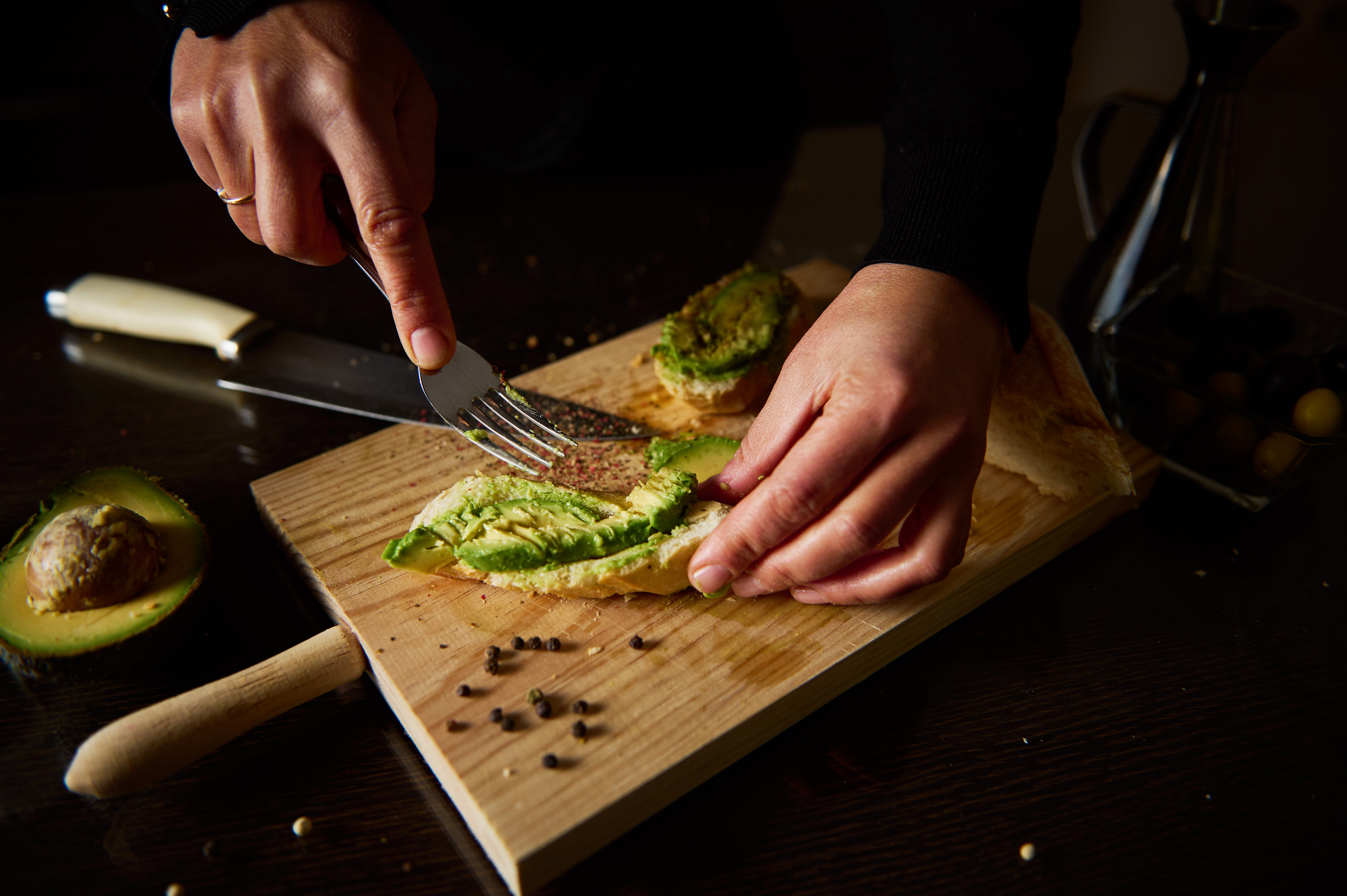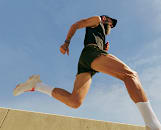
Westend61 / Westend61 via Getty Images
Late-Night Hunger? These 11 Healthy Snacks Will Leave You Satisfied Without Ruining Your Sleep
These evening bites are great for encouraging post-exercise muscle recovery too.
By Jessica Migala•
What Is a Healthy Late-Night Snack?
Best Healthy Late-Night Snacks
More Late-Night Snack Tips to Consider
You’re hungry. It’s 9 PM. Do you try to go to sleep with your stomach growling—or do you eat a little something to quiet the rumbles?
Discover more ways to reach your goals with Peloton
Despite what you might have heard, eating before bed isn’t a no-no. In fact, digging into a healthy late-night snack can support your fitness goals and overall wellbeing.
“For people who are active and want to support their metabolism, hormonal health, and circadian rhythm, an even snack can enhance those things, and may even provide better quality sleep,” says sports dietitian Jenna Stangland, RDN.
But what do experts qualify as a healthy late-night snack?
What Is a Healthy Late-Night Snack?
These are a handful of components to prioritize in a balanced late-night snack, according to Stangland:
Protein: This macronutrient is one of the most important elements of a healthy late-night snack, Stangland says. “Protein is a nutrient that is slower digesting. That’s beneficial since we are about to enter an overnight fast,” she explains.
Fiber: This type of carbohydrate is another nutrient that helps stabilize your blood sugar.
Anti-inflammatory fats: Healthy unsaturated fats such as omega-3 fatty acids can help reduce inflammation and promote workout recovery.
Hydration: If you’re eating a late-night snack to refuel after an evening workout, drinking plenty of water will support recovery as well.
Electrolytes: Sodium, potassium, and magnesium are all important minerals that play a role in muscle and nerve function. If you just knocked out a tough evening workout, a healthy late-night snack can help you replenish these electrolytes.
Your healthy late-night snack of choice might not hit every point above every single time, but aim for at least one or two of these when you’re putting something together. The components you prioritize can be based on what you most need or want at the moment, such as focusing on protein after an evening strength workout or zeroing in on fiber to carry you through the night without lots of stomach grumbles.
There are several situations in which you might benefit from a late-night bite, says Jena Brown, RD, a sports dietitian and owner of Victorem Performance Nutrition. Any reason is valid, of course—if you’re hungry, you should eat something—but here are a few specific scenarios that may call for a healthy late-night snack, she says:
You haven’t yet met your protein and calorie needs during the day
You have an early morning workout the next day and struggle to get enough pre-workout fuel
You work out in the evenings or after dinner and want to refuel and/or promote muscle recovery
You restricted food during the day, which can sometimes happen if you have a weight loss goal

Taras Grebinets / iStock / Getty Images Plus via Getty Images
Best Healthy Late-Night Snacks
The goal with a healthy late-snack is to refuel your body, support muscle recovery and metabolism, and deliver nutrients you need, Stangland says. Here are 11 snack options that do just that.
1. Greek Yogurt with Protein Granola and Frozen Berries
Greek yogurt supplies protein and (so long as you don’t buy a fat-free version) healthy fat, Brown says. She recommends making a nutrient-packed parfait by sprinkling protein granola (for an additional protein boost) and berries (for anti-inflammatory antioxidants) on top. All in all, this healthy late-night snack “helps support blood sugar and support overnight muscle recovery,” she says.
2. Avocado on Whole-Grain Toast
Smear avocado on top of a toasted slice of whole-grain bread to create a healthy late-night snack that provides a good source of fiber that’ll keep you satisfied while you sleep and maintain balanced blood sugar levels, Stangland says. If you’re on the hungrier side, top your toast with an egg for extra protein, she recommends.
3. Bone Broth
For times when you aren’t that hungry but still need a little something, a steaming mug of bone broth can come in clutch, Stangland says. Bone broth is a nourishing option that’s higher in protein compared to regular broth; in fact, 1 cup offers an impressive 7–10 grams of protein—not to mention, it delivers electrolytes like potassium and sodium.
4. Energy Balls
Whip up a batch of energy balls (sometimes called nut butter balls) to have on hand for quick and healthy late-night snacking. (Don’t worry: Despite their name, you don’t have to worry about them keeping you up all night; rather, they act as a steady souce of fuel.)
There are tons of recipes available, but energy balls are typically made with peanut or almond butter, chia or flax seeds, protein powder, and other tasty mix-ins, Stangland says, making them a tasty, balanced snack. Plus, they’re entirely customizable if you want to keep them gluten-free, non-dairy, or otherwise modify them.
5. Protein Shake
A protein shake is a nice option to quench both thirst and hunger. Brown recommends adding one scoop of whey or casein protein powder low in added sugars (so you don’t have a tough time sleeping) mixed into a glass of ultra-filtered milk. “[This is] a lower-carbohydrate late-night snack that helps fill protein gaps and reduces muscle soreness after an evening workout,” Brown says. Meanwhile, electrolytes like calcium in the milk support hydration and bone health, she adds.
Just remember: It’s wise to get your healthcare provider’s approval before starting a new supplement and opt for a protein powder that’s NSF-certified.
6. Roasted Chickpeas and Fruit
For a salty-sweet combo, Stangland recommends roasted chickpeas paired with some fruit. You’ll get some plant protein from the chickpeas plus fiber and antioxidants from the fruit to facilitate stable nighttime blood sugar.
7. Open-Faced Egg and Cheese Sandwich with Fruit
When you need a mini meal, this hits the spot. Brown says eggs deliver protein, vitamins, minerals, and fat all in one package. If you want to keep carb portions balanced, you can make an open-faced egg-and-cheese by serving it on a slice of bread or half a bagel. A yummy serving of fruit on the side adds fiber and antioxidants for blood sugar management, she says.
8. Ricotta and Strawberries
Clearly, dairy and fruit is a winning late-night snack combination, but it works for a reason. Ricotta makes for a nice, creamy, dessert-like texture, especially when paired with sliced strawberries. It also packs in a solid amount of protein: A half-cup of part-skim ricotta cheese supplies 14 grams of the macro. Plus, it’s a solid source of calcium and phosphorus, two nutrients that support bone health. Toss some sliced almonds on top for a little crunch.
9. Turmeric Latte
A turmeric latte (also known as a golden milk latte or haldi doodh in Hindi) is made with milk, turmeric, spices (like cinnamon, ginger, or black pepper), and may be lightly sweetened to taste. This is another recommendation from Stangland that can be both warm and comforting.
10. Muesli with Cottage Cheese
Muesli is kind of like a raw granola—it’s oats mixed with dried fruit, nuts, and seeds, and it makes a great topping for a late-night cottage cheese snack, Stangland says. “This is a nice high-fiber, high-protein choice,” she says.
11. Nuts and Cheese
Some roasted almonds or pistachios paired with a piece of cheese can make for a solid late-night snack if you’re not super hungry. The casein protein from cheese allows for slow digestion, while the nuts offer up a little fiber and protein. Plus, research also shows that some nuts, such as walnuts and almonds, have anti-inflammatory properties.

Peloton App
Access thousands of classes with no equipment needed.
More Late-Night Snack Tips to Consider
If you’re chefing up a healthy late-night snack of your own, here are a handful of dietitian-backed pointers to keep in mind:
Time it right: Eating too close to bedtime can be disruptive to sleep, so it’s wise to give your digestive system enough time to break down your snack. Brown recommends eating at least one hour before your planned bedtime.
Aim for enough protein: Try to include 20–40 grams of high-quality protein alongside 20–40 grams of carbohydrates from whole foods, Brown recommends.
Drink up: “Make sure you’re hydrating with your snack,” Stangland says. “This will help with digestion,” she explains.
Avoid caffeine: Having foods or beverages with caffeine can also make it tough to fall asleep. Remember that caffeine isn’t just in coffee and energy drinks, either—it’s present in chocolate, tea, and soda too.
Try to limit sugar and ultra-processed foods: Every food can have a place in a balanced diet, but if you’re eating your snack before bed, keep in mind that excess sugar at night can negatively affect your sleep, Stangland says. Brown also recommends keeping ultra-processed foods like chips or cookies to a minimum.
Finally, it’s worth pay attention to your evening hunger levels. Nighttime hunger can clue you into valuable information, Stangland says. Brown agrees: “Hunger before bed could be a sign of under-fueling throughout the day or an indication that meal timing may need to be adjusted around training sessions,” she says. Rather than bulking up a snack in the evening, Stangland recommends asking yourself where you can have more fuel during the day to support your body’s needs.
Related Articles

Nutrition
Want to Eat More Protein? Don’t Sleep On These 10 High-Protein Snacks Loved by Dietitians

Nutrition
The 11 Best Bedtime Snacks to Help You Sleep, According to Registered Dietitians

Nutrition
Could Eating Protein Before Bed Help You Build Muscle In Your Sleep?

Nutrition
Should You Eat Dinner Before or After an Evening Workout?
This content is for informational and educational purposes only and does not constitute individualized advice. It is not intended to replace professional medical evaluation, diagnosis, or treatment. Seek the advice of your physician for questions you may have regarding your health or a medical condition. If you are having a medical emergency, call your physician or 911 immediately.
Get our latest health stories straight to your inbox
Enter your email to get articles, expert-backed tips, and updates from Peloton sent to your inbox.
By providing your email address, you agree to receive marketing communications from Peloton.
For more about how we use your information, see our Privacy Policy.





